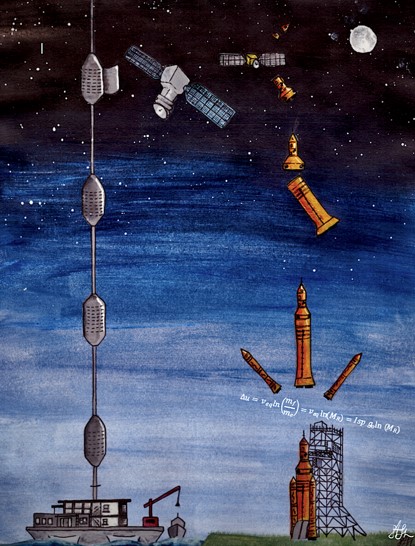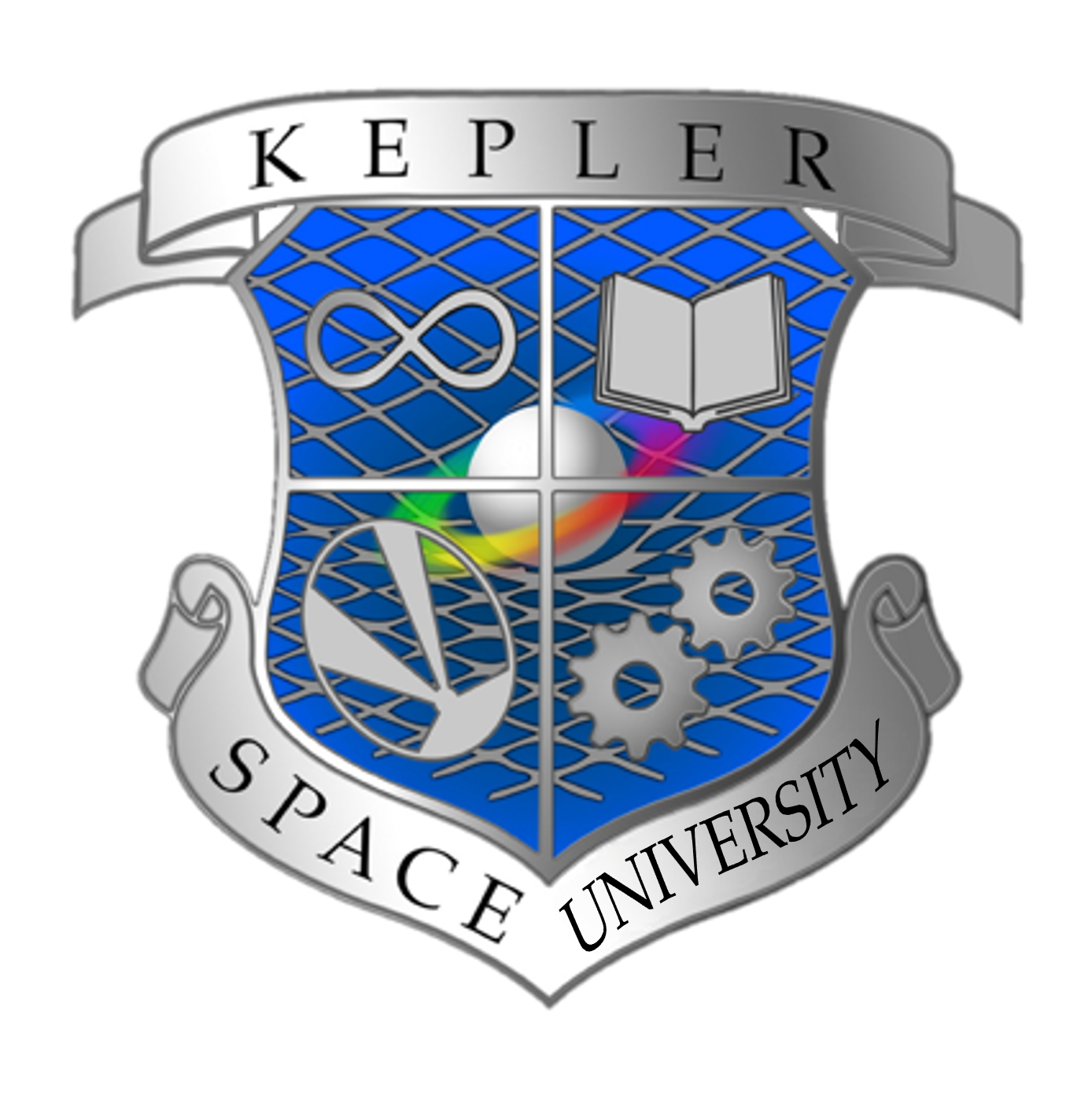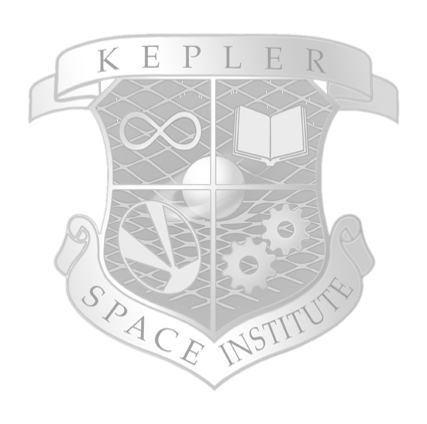Tethered Space Lift
BY Dr. Jason ArnoldHumanity’s future is in space, but the logistical requirements of extra-terrestrial habitation are far greater than what can be achieved through rockets alone. Alternatives to chemical-reaction lift exist but technological, political and environmental barriers obstruct their construction.
FORMAT
Weekly live sessions
ONLINE ACCESS
Progress at your own pace
6 WEEKS
2 hours per week
UPCOMING
SESSIONS
ABOUT THIS COURSE

TETHERED SPACE LIFT
Humanity’s future is in space, but the logistical requirements of extra-terrestrial habitation are far greater than what can be achieved through rockets alone. Alternatives to chemical-reaction lift exist but technological, political and environmental barriers obstruct their construction. Utilizing the earth’s rotational force, tethered lift systems like a space elevator bring enormous tonnage to orbit, spacecraft transfer to the moon and other planets, and facilitate assembly, manufacturing, and experimentation in non-gravity environments. In this course, we look at the feasibility and potential of tethered lift systems, explore solutions to the challenges that face their construction, develop logistical requirements for human habitats, and develop innovations for improvements in space infrastructure through the dual architecture of rockets and tethered lift.
WHAT YOU’LL LEARN
- Understand the physical forces that make tethered lift possible
- Contrast challenges of chemical reaction lift with tethered lift
- Evaluate challenges to the construction of a space elevator
- Create scenarios that illustrate strengths and challenges of different lift systems
- Analyze extraterrestrial habitat requirements to determine logistical needs
- Compare trade-offs of performance, safety, and size in climber design
- Compare capacity, cost, and environmental impacts of the two lift architectures
- Apply tether strength requirements to potential materials
- Develop solutions to scenario based problems on elements of the space elevator
- Create a group presentation illustrating logistical support for future space activities
SYLLABUS
This 6-week space course will be offered online once a week for two consecutive hours. In this course, we look at the feasibility and potential of tethered lift systems, explore solutions to the challenges that face their construction, develop logistical requirements for human habitats, and develop innovations for improvements in space infrastructure through the dual architecture of rockets and tethered lift.
UNIT 1 - Space Logistics
- Vision exercise – humanity in space
- Logistic functions – Transport, supply, and sustain
- Space Settlement Scenario
UNIT 2 – State of Play in space
- Current Space Lift
- Players – Government, Defense, Commercial, International
- Exploration – space missions and activities
- Challenges and Opportunities – Dual Architecture
UNIT 3 – Tethered Lift – The Space Elevator
- Elements of Space Elevator
- Apex Anchor – Mission Exercise
- Innovation lab – Climber solutions
- Innovation lab – Material solutions
- Debris, Weather, Sabotage Scenarios
UNIT 4 – Missions
- Planetary Transfer
- In-Space manufacturing, experimentation, and assembly
- Orbit types – Transport Cycler Scenario
- Environment, Climate change, Space Solar power
- Space economy Scenarios
UNIT 5 – Capstone
- Team projects – Architecture Innovation
INSTRUCTOR
Dr. Arnold is the Director of Education and Outreach for the International Space Elevator Consortium. He is also a National Space Society Space Ambassador. Previously, he served as an Assistant Professor, Senior Lecturer, Associate Dean, and Dean of the Defense Security Cooperation University. He is a retired Air Force Colonel with 23 years of service. In that capacity he served as a NATO officer, a CENTCOM advisor in Saudi Arabia, and on the initial staff of AFRICOM during their operational standup. Dr. Arnold was on faculty at the National Defense University (NDU), and programmed Space, Cyber, ISR, RPA, and C2 units as the Global Vigilance Panel Chair at Air Force Reserve Command Headquarters (A8V). He is a Joint Qualified Officer with academic titles as Senior Lecturer in Security Cooperation Management and Assistant Professor of Joint Military Operations. Dr. Arnold was previously assigned to USMTM in Riyadh, Saudi Arabia, and was stationed in Germany twice – with AFRICOM in Stuttgart and NATO AWACS in Geilenkirchen. Dr. Arnold has taught Senior Executives, Diplomats, Saudi aviators, NATO military professionals, and worked extensively with allies in a variety of operational contexts during conflicts in the Middle East, Africa, and the Balkans. Dr. Arnold was also involved with security cooperation programs as a master navigator in both C-130 and AWACS aircraft. His educational credentials stem from time as faculty at NDU’s Joint Forces Staff College, USAF Air University’s Air Command and Staff College and the Defense Security Cooperation University.
Dr. Arnold earned the Doctor of Education degree specializing in Performance Improvement Leadership and also holds a Masters of Education focusing on Adult and Higher Education. He has certificates from University of Wisconsin on Distance Education and in College Teaching from Tidewater Consortium. He has been published in the Foreign Affairs Officer (FAO) Journal. He is a graduate of Air War College, SHAPE’s NATO Staff Officer School, and the Space Orientation Course.

Dr. Jason “Hap” Arnold
Director of Education and Outreach, International Space Elevator Consortium, Kepler Space University
WAYS TO ENROLL
Tethered Space Lift
Humanity’s future is in space, but the logistical requirements of extra-terrestrial habitation are far greater than what can be achieved through rockets alone. Alternatives to chemical-reaction lift exist but technological, political and environmental barriers obstruct their construction.
PROFESSIONAL $900 USD
EDUCATOR $500 USD
STUDENT $300 USD
Frequently Asked Questions (FAQs)
Who can enroll?
Students from all walks of life are invited to enrol! All you need is access to email and a strong internet connection to participate in live sessions and watch KSU educational content.

